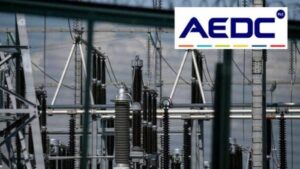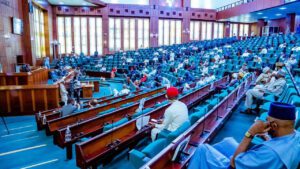
NUPRC develops framework to guide Shell divestment, others
The Nigeria Upstream Petroleum Regulatory Commission (NUPRC) has developed a divestment framework to guide the assessment of applications for ministerial consent to the Shell Petroleum Development Company of Nigeria Ltd. (SPDC) divestment.
The NUPRC said the framework with seven cardinal pillars would also guide other similar divestments in the country.
The commission’s Chief Executive, NUPRC, Mr Gbenga Komolafe, said this at the NUPRC-Shell Petroleum Development Company of Nigeria Ltd. divestment workshop on Monday in Abuja.
The due diligence workshop aimed at discussing the proposed divestment of the participating interests in the SPDC JV Assets, through a sale by its shareholders of all the issued shares of the SPDC to Renaissance Africa Energy Company Ltd.
The SPDC JV assets are currently operated by the SPDC on behalf of its Joint Venture (JV) partners, namely, Nigerian National Petroleum Company Limited (NNPC Ltd.), Total Upstream Nigeria Limited, Nigeria Agip Oil Company and SPDC.
SPDC JV OMLs were originally awarded as Oil Exploration Licence -1(OEL-1) on Jan. 1, 1949, covering the whole of southern Nigeria and Cameroon.
Ultimately, the assets were converted to OMLs in April 1962 and subsequently renewed in 2014 and 2018 for 20 years.
Komolafe listed the cardinal pillars to include technical capacity, financial, legal, decommissioning and abandonment (D&A), host community trust /environmental remediation fund, industrial relations and labour issues and data repatriation.
On technical capacity, he said the successor entity must demonstrate verifiable capacity to operate the asset vigorously, while the NUPRC shall assess the prospective successor’s financial viability to undertake a defined programme and fulfil required obligations on the assets.
On the legal framework, he said the acquiring entity must be ‘fit and proper’ persons in the eyes of the law.
He added that clear evidence of resolutions of legacy debts and legal encumbrances must be established.
“Applicable decommissioning and abandonment costs must be diligently assessed and ensure settlement of outstanding obligations. Commission will ensure that potential exposure of the Nigerian government to decommissioning liabilities is averted.
“The commission shall assess the status of Host Community Trust Fund obligations and ensure the robustness of the successor entity’s adherence to decarbonisation plans and sound Environmental Social & Governance principles.
“The commission shall implement a robust assessment mechanism to avert undesirable labour union issues and disharmony arising from the divestment process.
“Concerned parties shall endorse a “Certificate of Settlement” to validate alignments reached on all labour issues (staff welfare, benefits, entitlements as well as disengagement, redundancies and retirement, among others).
“The aim is to ensure the nation averts socioeconomic disruptions arising from failure to resolve labour issues that might result because of post-divestment,” he said.
On data repatriation, the CCE emphasised that the commission would ensure that all data mined during the operating life of the asset were repatriated to the National Data Repository in line with extant regulations.
Komolafe, however, emphasised that the NUPRC would remain committed to free entry, free exit business principle aimed at encouraging investors in the sector.
Mr Wessel de Haas, General Manager, SPDC Assets and Deputy Managing Director, reiterated the significant contribution the company had made and expected to make in the future, toward Nigeria’s economic growth.
He anticipated a favourable outcome from the workshop with expectation of a due diligence process to finalise the divestment.




